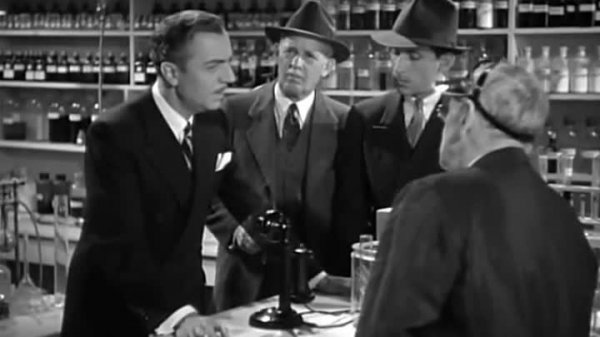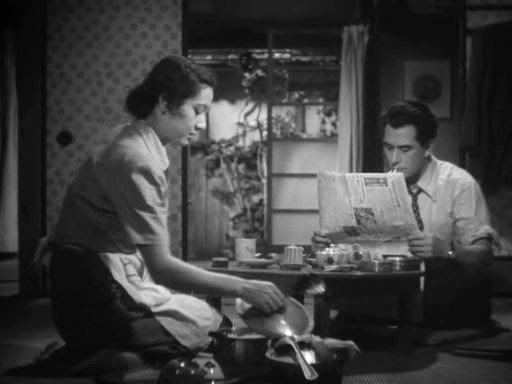- Messages
- 17,484
- Location
- New York City

Rendezvous from 1935 with William Powell, Rosalind Russell, Lionel Atwill and Binnie Barnes
There's nothing wrong with mashing up a romcom with a spy caper; it just takes a harmonizing of tone and style. Unfortunately, Rendezvous' attempt feels more like two separate movies showing at the same time than a well-integrated effort.
It's 1917 and genius-cryptographer William Powell tries to hide his identity from the military because he wants to fight at the front and not be stuck in an office deciphering enemy messages.
Just before shipping overseas, he meets slightly daffy but cute Rosalind Russell whom he tells, in confidence, he's the cryptographer for whom the military has been looking. Having immediately fallen for Powell, Russell informs her uncle, the Assistant Secretary of War, who Powell is, so that the army will keep him near her in Washington.
That sets the movie on a bifurcated course. Powell takes over an Army cryptography department in need of an "unbreakable" code for use in a crucial allied ship rendezvous. While that is handled with spy-war seriousness, the other path of the movie has goofy Russell, ignorant of the importance of Powell's work, unintentionally and repeatedly, messing up his covert efforts as she clumsily pursues him romantically.
The espionage story is a pretty good by-the-numbers effort involving a Washington-based German spy ring that extends to Mexico, a beautiful blonde German Mata Hari who pursues Powell (and infuriates Russell), some neat WWI cryptography and spy technology and a reasonable amount of fist fights, gun fights, late-night secret meetings and double and triple agents.
But the Russell-Powell love thread is, well, a hot mess. Russell plays it like a full-on screwball comedy, silly pratfalls and all, while Powell seems to have intuited that won't work in this movie, so he plays the romcom stuff lower than low key. Whether Russell just didn't get it or she was badly directed, she's never been more out of step in a movie.
Since the romcom sleeve does not work, thankfully, the movie is more spy story than love story. With solid efforts by Lionel Atwill as an unintentionally compromised British cryptographer and Binnie Barnes as the seductive enemy spy, the movie is a pretty good espionage tale.
It's just a shame that the romcom element wasn't harmonized in style and tone to the espionage element or MGM would have had a darn-good movie on its hands with Rendezvous. Instead, it feels as if you're watching a decent spy story that gets oddly interrupted from time to time with clips from a romcom that happens to have the same actors in it.



